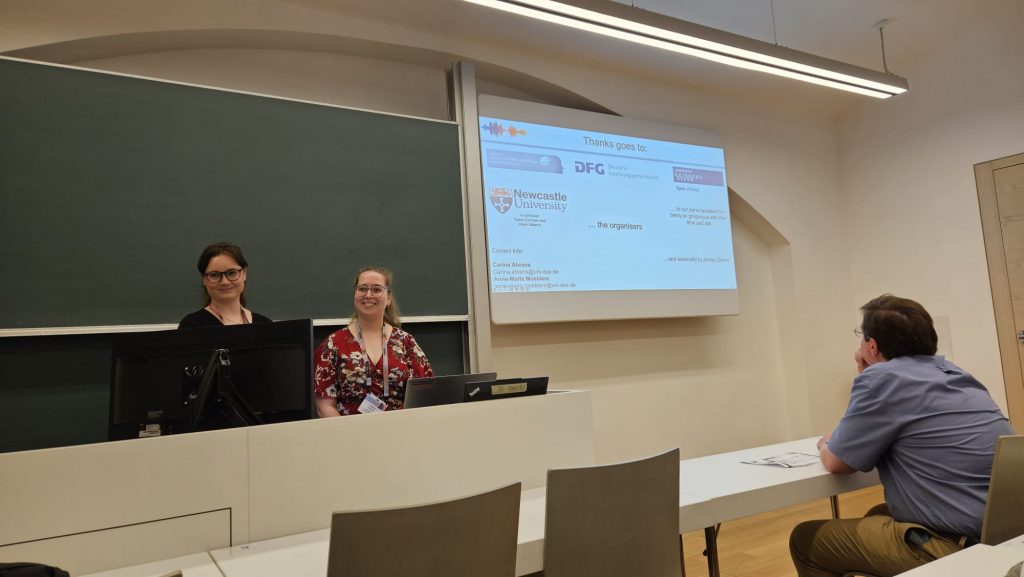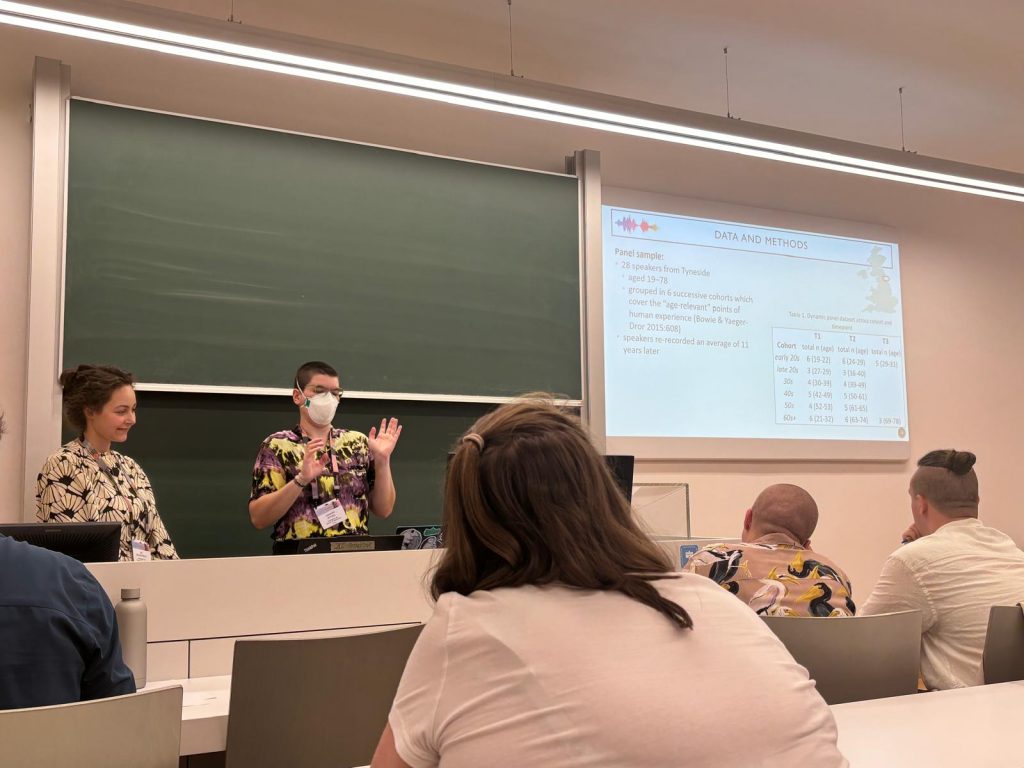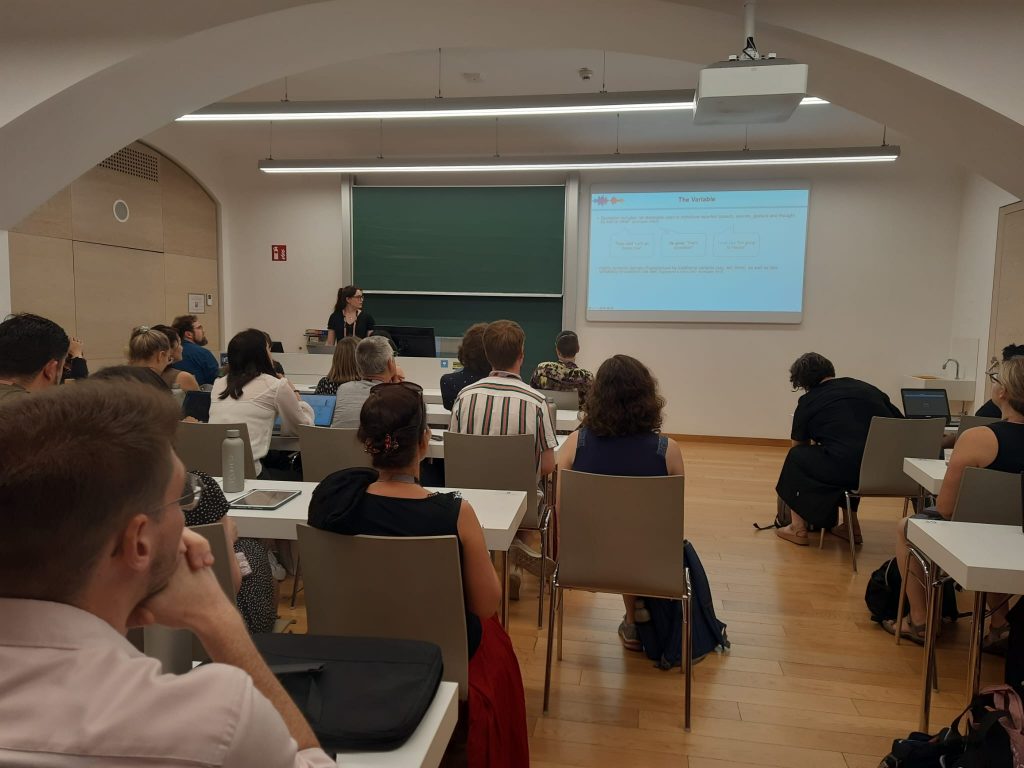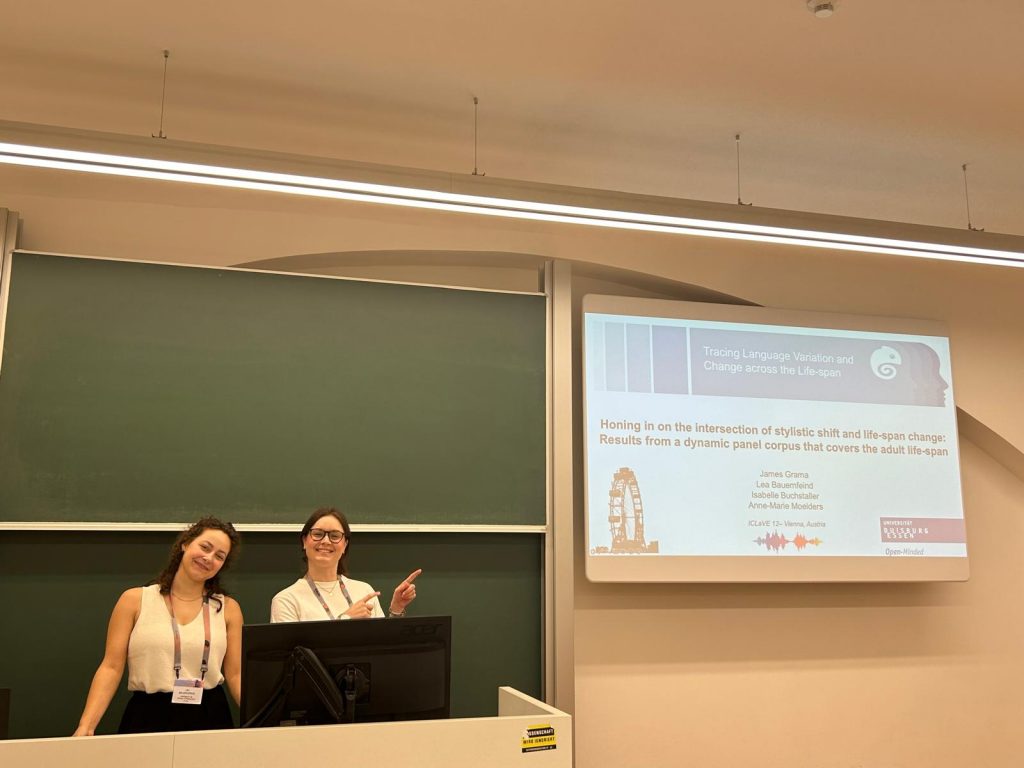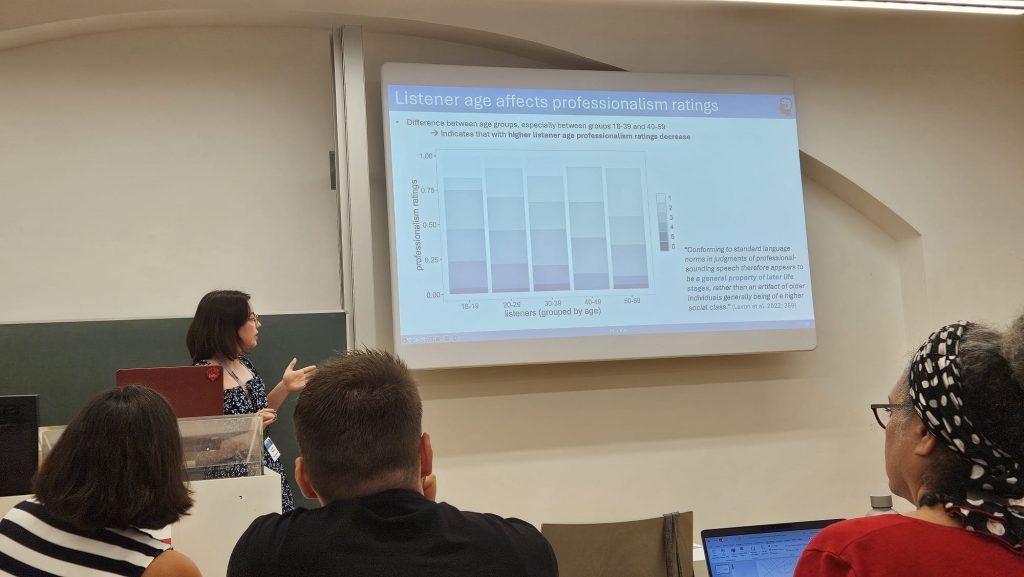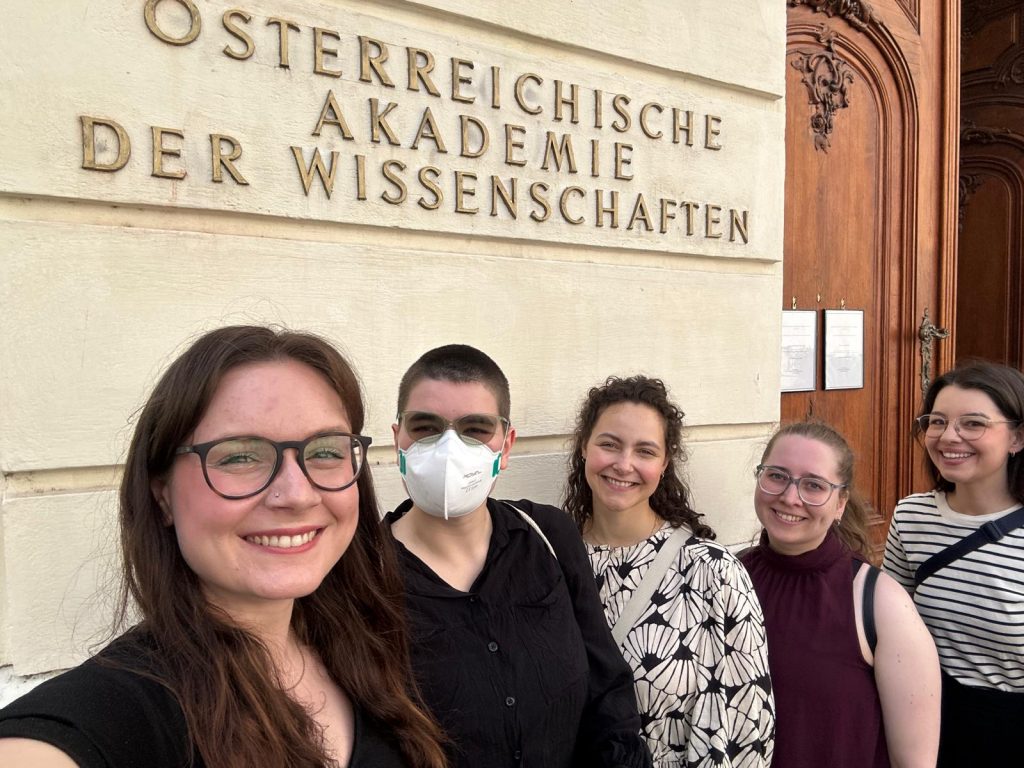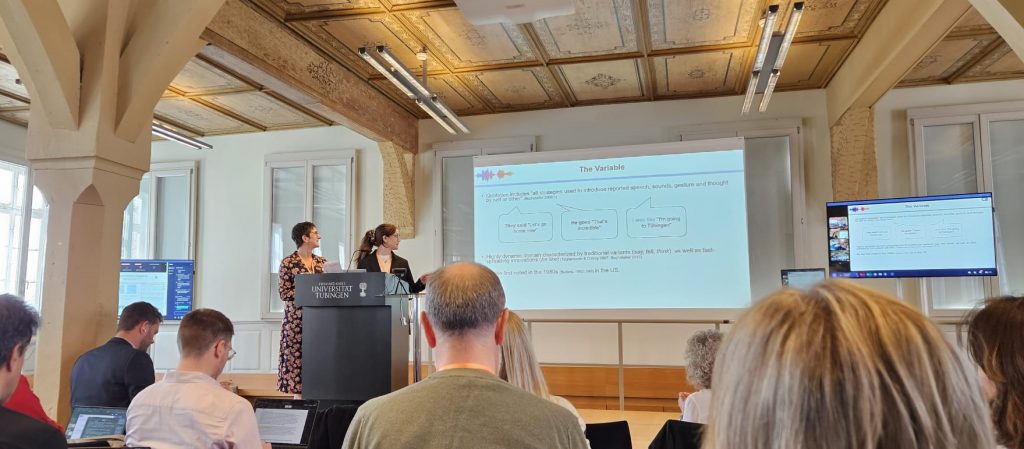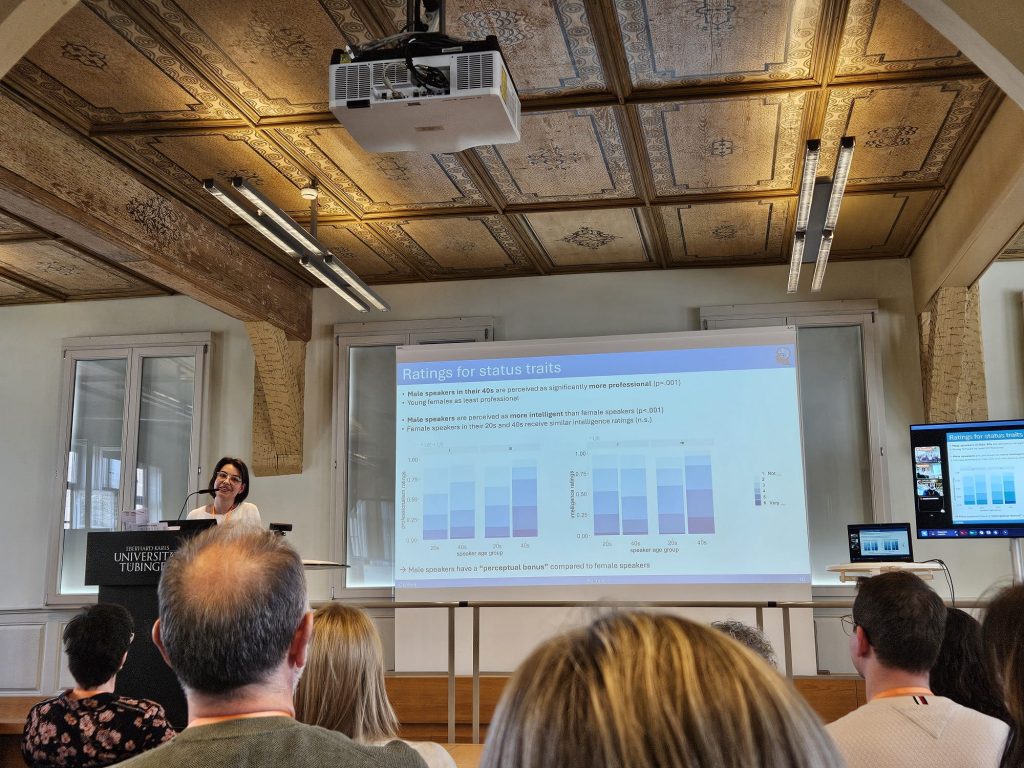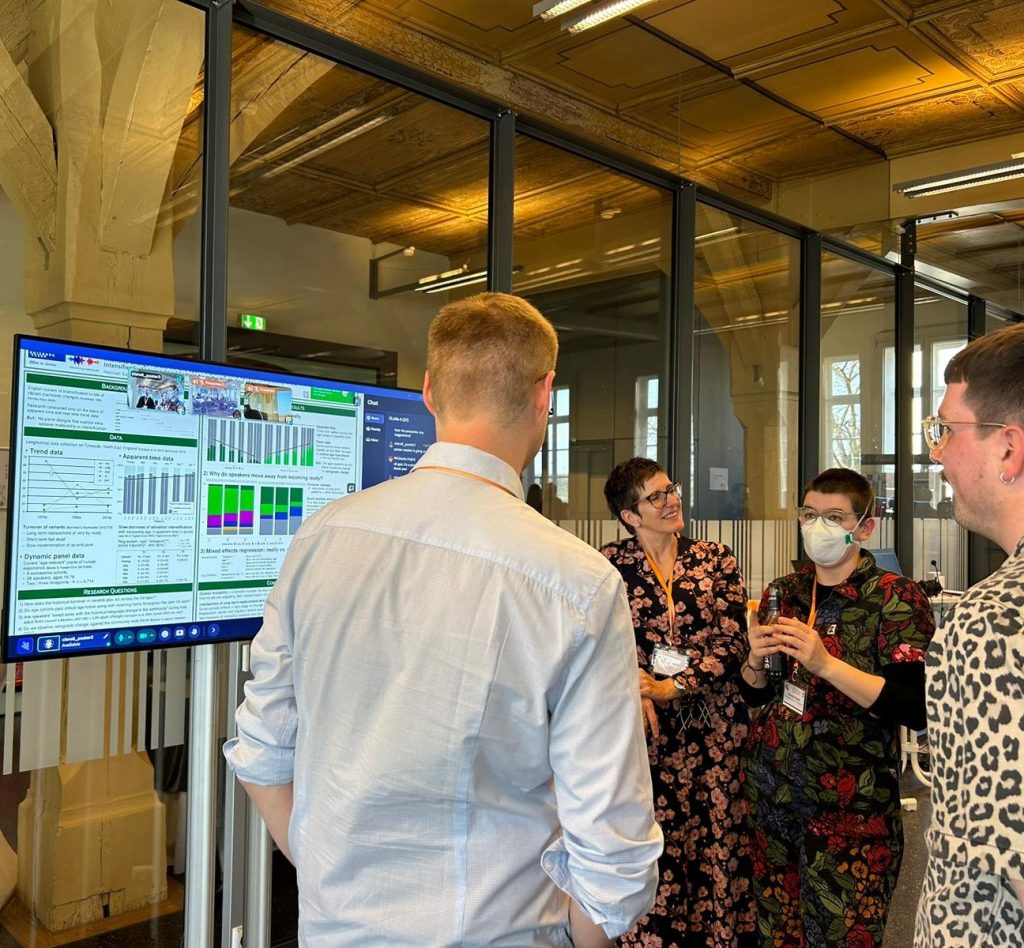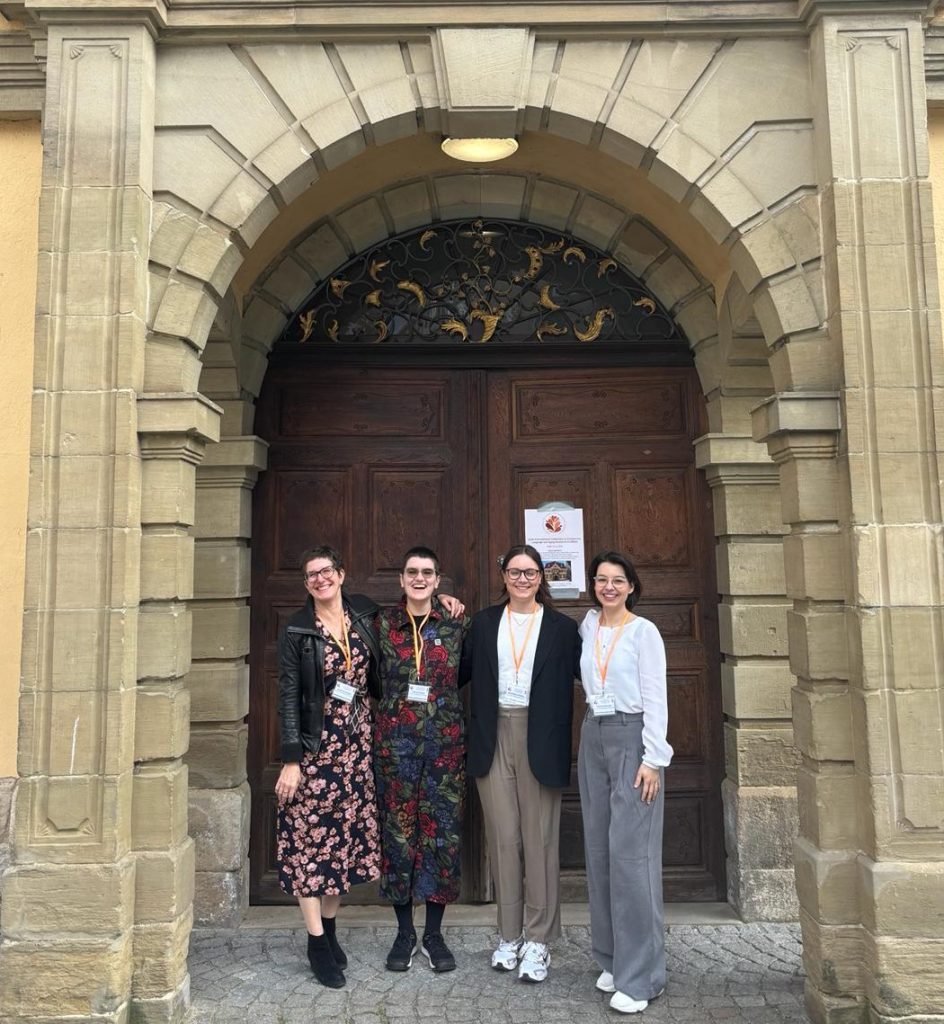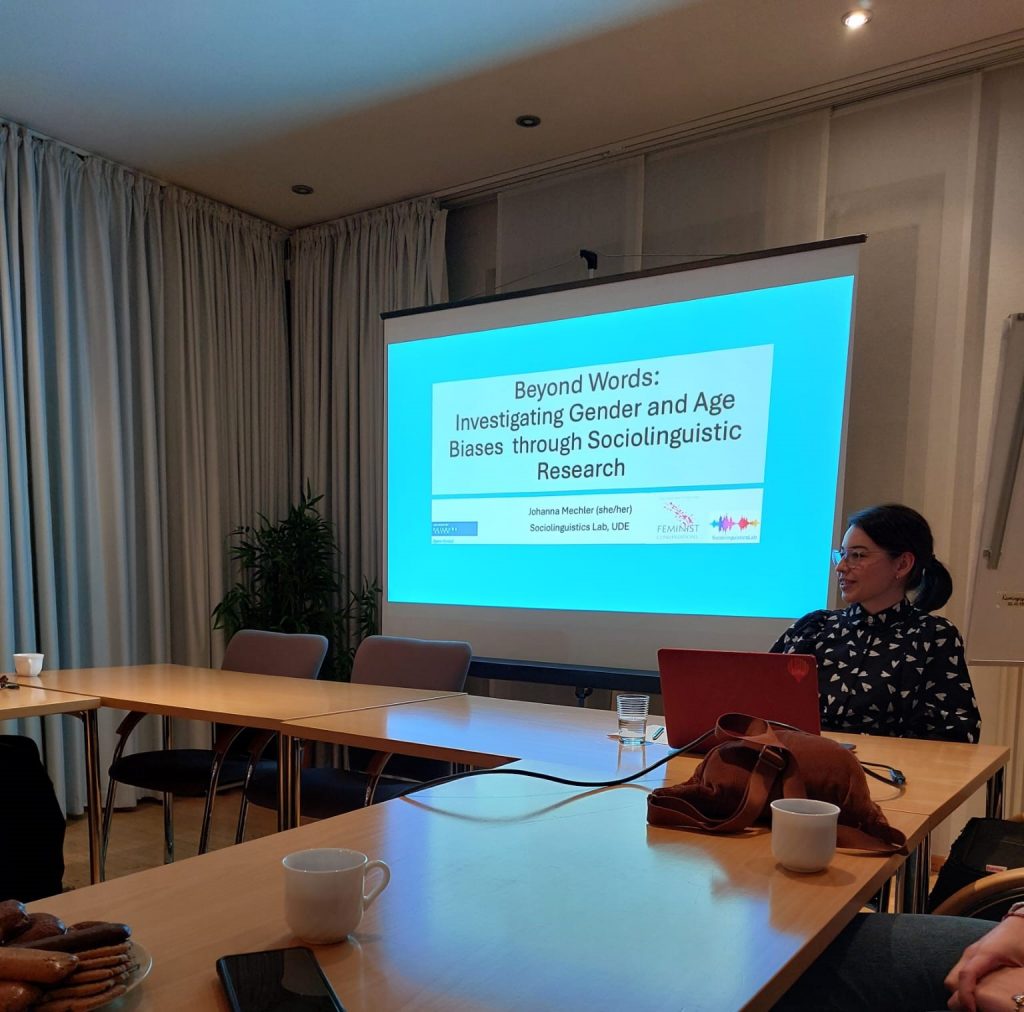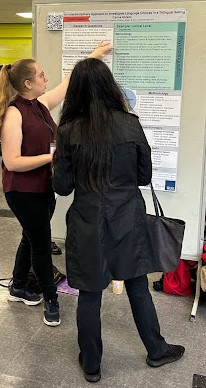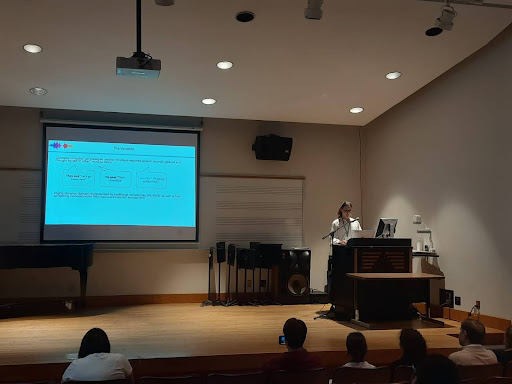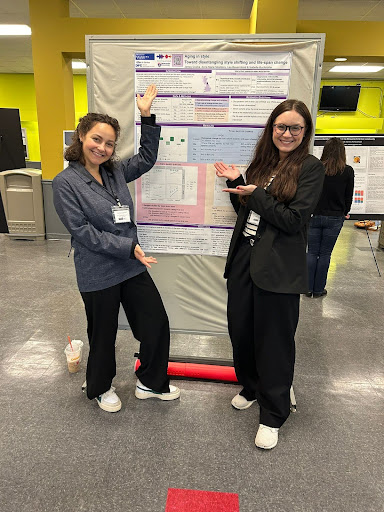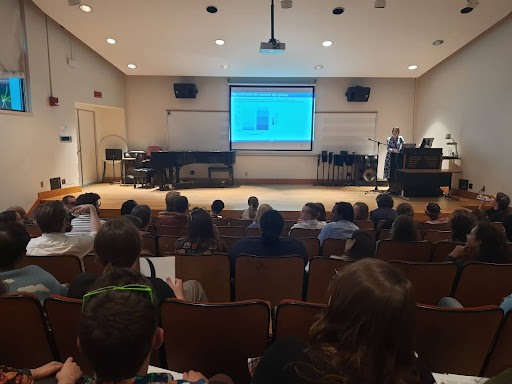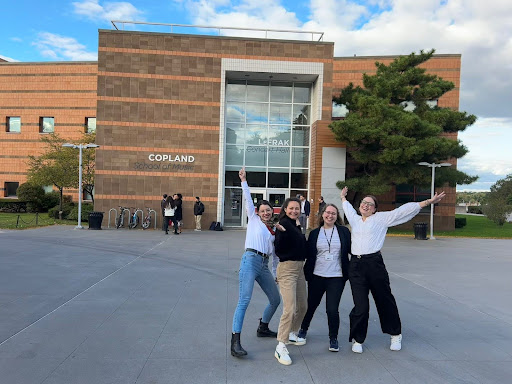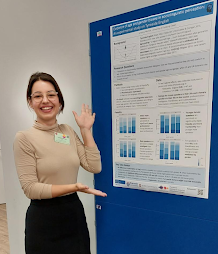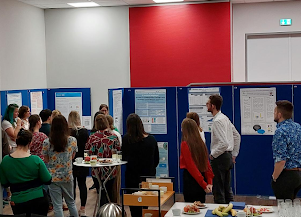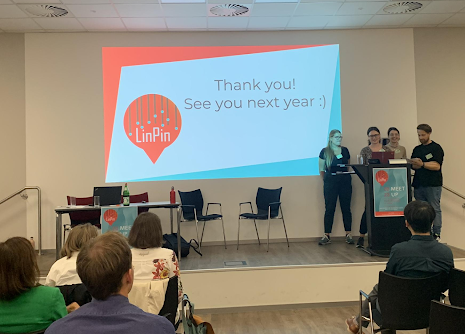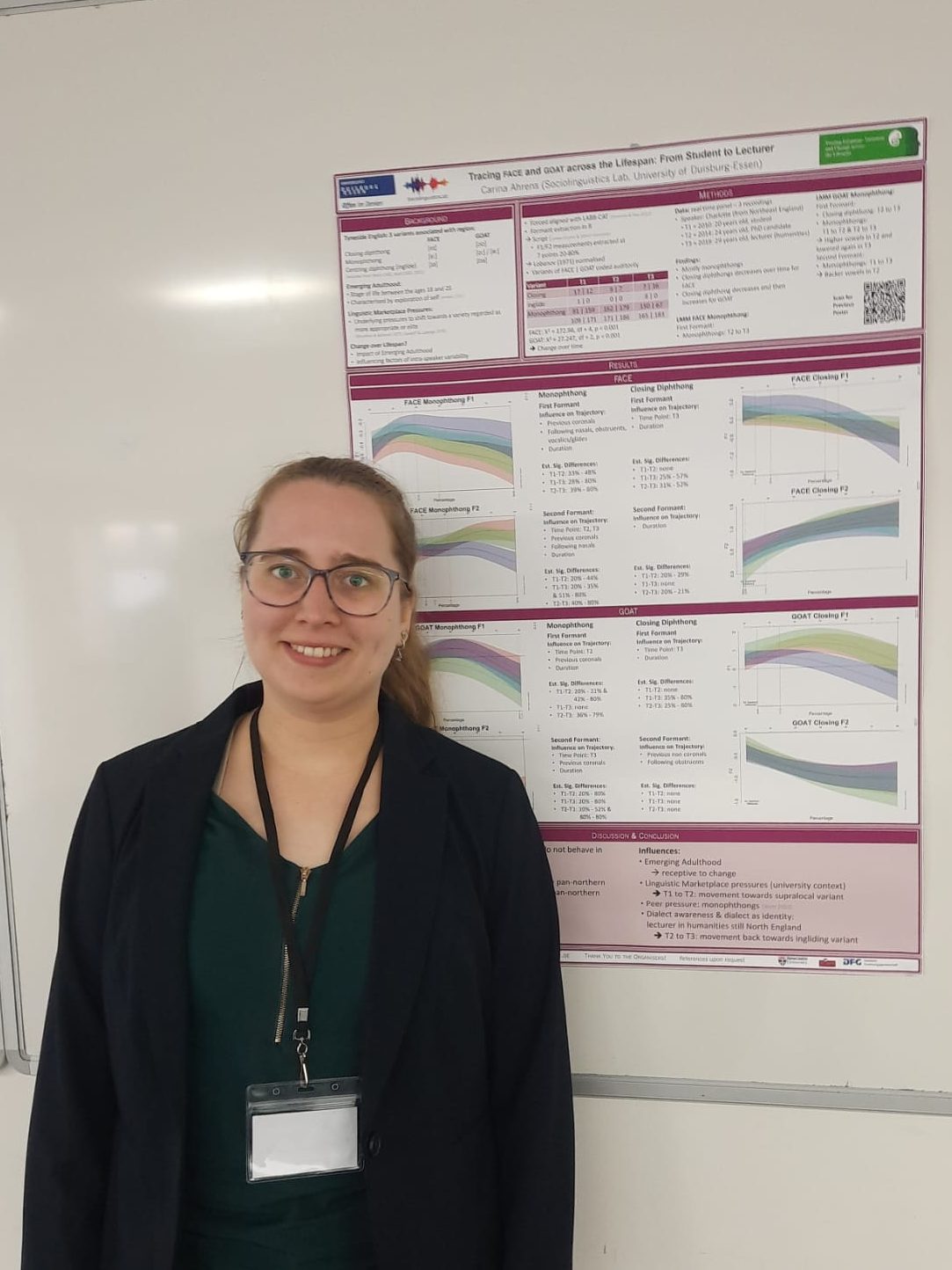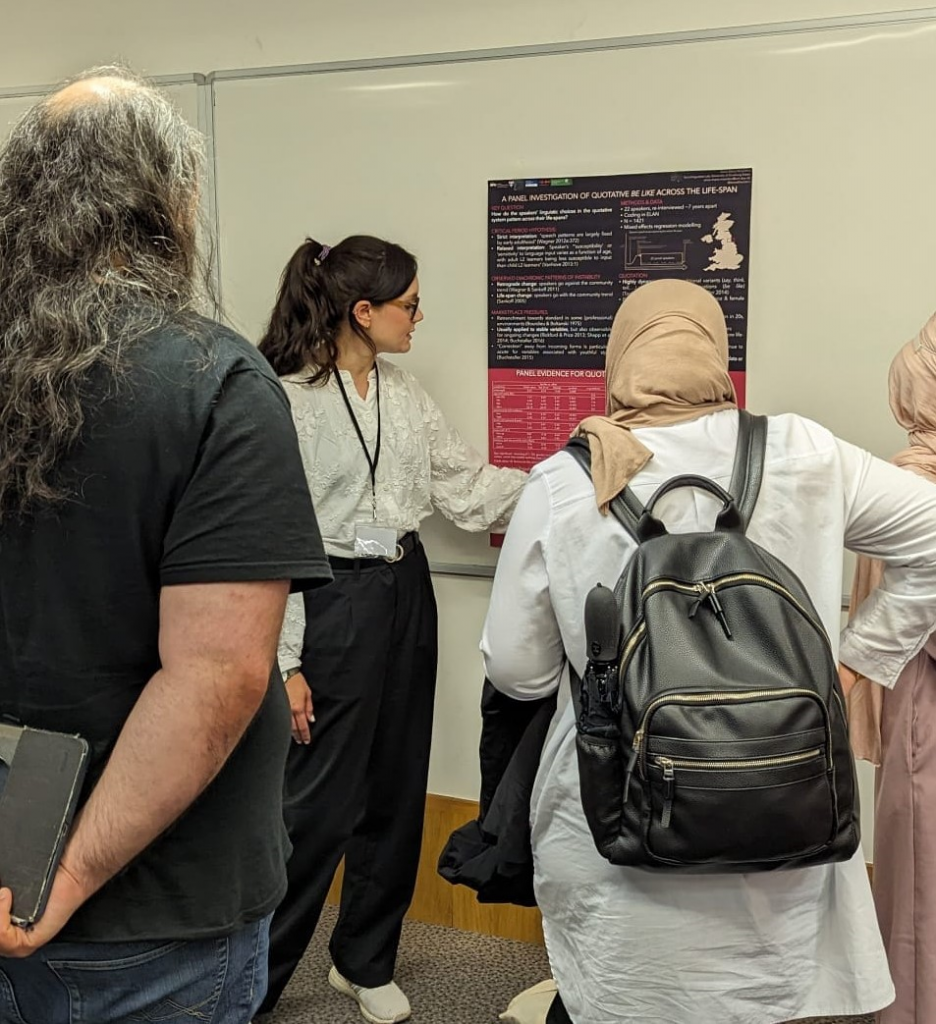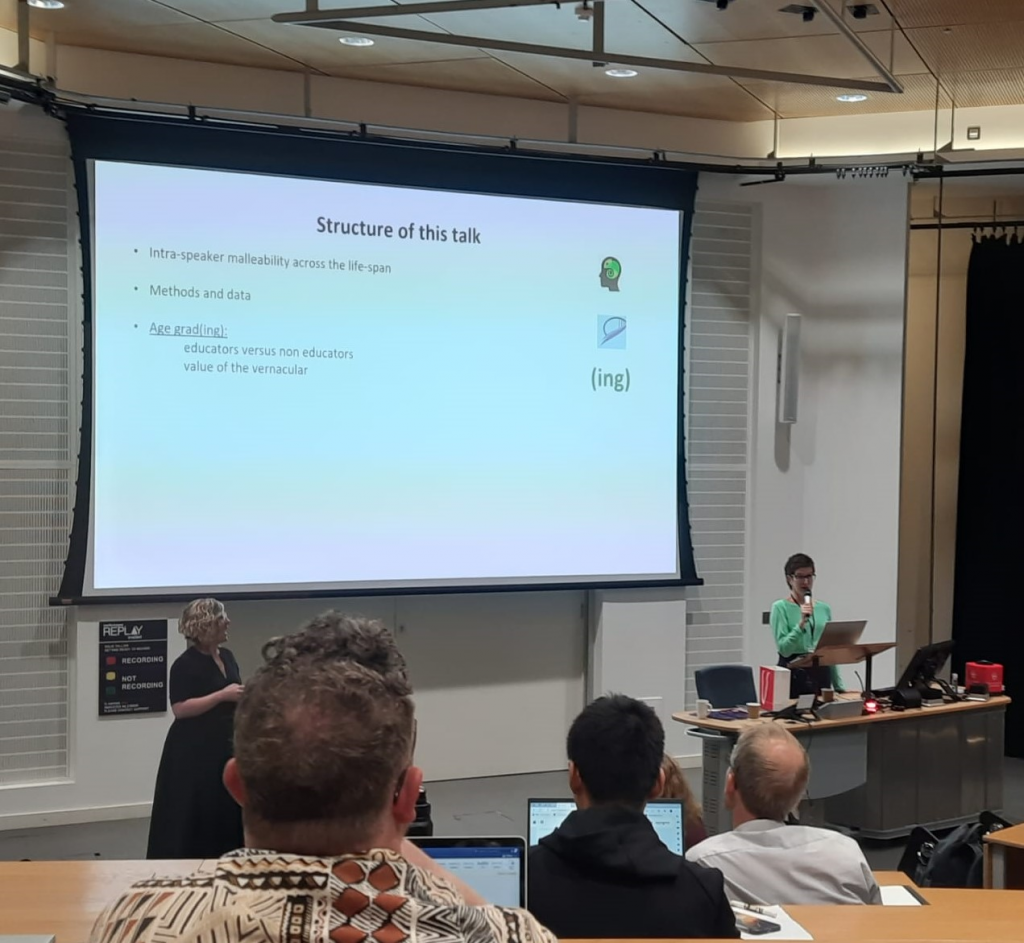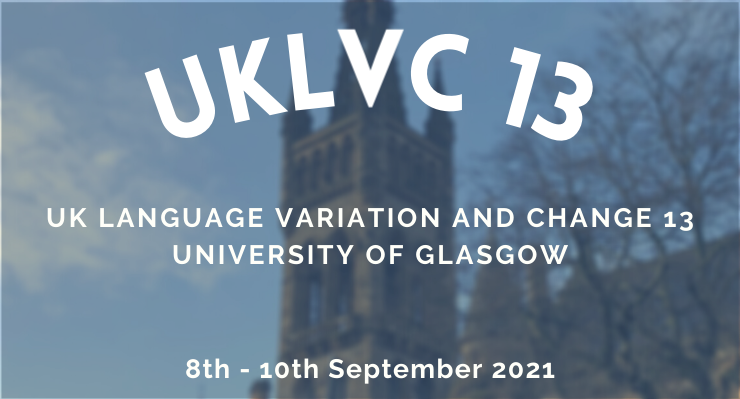Another sunny conference — five members of the LaVaLi project team attended the 12th International Conference on Language Variation in Europe in the beautiful buildings of the Austrian Academy of Sciences and the University of Vienna.
Our team started with a talk given by Carina Ahrens and Anne-Marie Moelders with the title “me and my Accent – Analysing Acoustic Patterns of the First-Person Possessive and Object ‚me‘: Evidence from Tyneside English”, a study based on parts of Anne’s PhD project and Carina’s MA-thesis that investigated the acoustic realisation of [mi] serving as possessive and as object. Their results show that the vowel in the object moves slower than in the possessives while travelling the same distance in the vowel space.
Up next were Hannah Sawall and Lea Bauernfeind, presenting also on behalf of their co-authors Isabelle Buchstaller, Yasmina Bouziani, and Elisavet Kyriakoudi and highlighting the intense competition between intensifiers (modifying words like really, very or so) over the life-span of Tyneside speakers. They find that younger speakers use more really than older speakers.
After a refreshing lunch break, Anne presented “A life-span perspective on longitudinal changes in the quotative system – findings from a dynamic panel” (also co-authored by Isabelle Buchstaller). Anne and Isa found that be like shows gender-lect patterns across the life-spans of their panel speakers.
On Wednesday, Lea and Anne (and Isa and James in absentia) honed in on the intersection of stylistic shift and life-span change. Their findings show that speakers in their thirties show the greatest stylistic variation in their panel sample, which they attribute to the fact that these speakers are in a lifestage that encourages them to sound more “professional” and thus they rely more on prestigious variants than speakers older or younger than them.
And last but definitely not least, Johanna Mechler gave a talk on the influence of age and gender on evaluating vernacular voices across different life stages. She finds that while men in their 40s are rated higher in professionalism and intelligence, younger women are perceived as friendlier and more trustworthy – both trends reflect societal stereotypes and biases. You can read more about her study in this blog entry.
We collected insights from many other talks we attended that also dealt with language variation, change over the life-span, and/or Tyneside English, and engaged in plenty of inspirational conversations over cake or drinks during coffee breaks and receptions.
We were great fans of the impressive location and would like to thank the organisers and all helpers for running such a large conference so smoothly. We are looking forward to many future conferences – similarly successful as this one!

